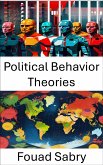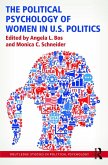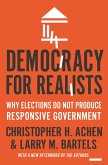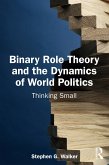This theory explores the critical role formative years play in shaping lifelong political attitudes and behaviors. "Impressionable Years Hypothesis" explains how early life experiences influence political ideologies, making it essential for understanding political identity development.
Gain a deeper understanding of how political beliefs are formed, solidified, and influenced through life stages. Whether you're a student, professional, or enthusiast, this book provides insights into the psychological and social foundations of political behavior.
1: Impressionable Years Hypothesis: Learn the core theory of how early experiences shape political attitudes.
2: Political Socialization: Explore how family, education, and society influence political values.
3: Group Polarization: Understand how group discussions intensify political opinions.
4: Selective Exposure Theory: Discover how people favor information that aligns with their beliefs.
5: Theories of Political Behavior: Study theories behind political participation and psychological influences.
6: Political Psychology: Examine the role of personality and cognition in political behavior.
7: Party Identification: Analyze how political loyalty forms in the impressionable years.
8: Youth Culture: Investigate how youth culture shapes political identity.
9: Baby Boomers: Explore the political behaviors of the Baby Boomer generation.
10: Millennials: Discover how Millennials' experiences shape their political attitudes.
11: Political Spectrum: Understand where political ideologies fall on the spectrum.
12: Generation: Study how formative experiences create generational political identities.
13: Young Adult: Learn how early adulthood solidifies political beliefs.
14: Political Party Strength in U.S. States: Assess how early experiences influence state-level party strength.
15: Independent Voter: Explore how independent voters differ from party-affiliated individuals.
16: Religious Identity: Study the intersection of religion and political identity.
17: Theodore Newcomb: Learn about Newcomb's contributions to political psychology.
18: Political Identity: Delve into the lifelong impact of political identity formation.
19: Voter Segments in Political Polling: Understand how early socialization affects voter segmentation.
20: Political Cognition: Study how cognition in formative years shapes political thought.
21: Political Views of Generation Z: Explore the emerging political beliefs of Generation Z.
Designed for professionals, students, and anyone curious about the Impressionable Years Hypothesis, this book provides a comprehensive look into how early experiences shape lifelong political identities. Ideal for those looking to go beyond the basics of political behavior and identity formation.
Gain a deeper understanding of how political beliefs are formed, solidified, and influenced through life stages. Whether you're a student, professional, or enthusiast, this book provides insights into the psychological and social foundations of political behavior.
1: Impressionable Years Hypothesis: Learn the core theory of how early experiences shape political attitudes.
2: Political Socialization: Explore how family, education, and society influence political values.
3: Group Polarization: Understand how group discussions intensify political opinions.
4: Selective Exposure Theory: Discover how people favor information that aligns with their beliefs.
5: Theories of Political Behavior: Study theories behind political participation and psychological influences.
6: Political Psychology: Examine the role of personality and cognition in political behavior.
7: Party Identification: Analyze how political loyalty forms in the impressionable years.
8: Youth Culture: Investigate how youth culture shapes political identity.
9: Baby Boomers: Explore the political behaviors of the Baby Boomer generation.
10: Millennials: Discover how Millennials' experiences shape their political attitudes.
11: Political Spectrum: Understand where political ideologies fall on the spectrum.
12: Generation: Study how formative experiences create generational political identities.
13: Young Adult: Learn how early adulthood solidifies political beliefs.
14: Political Party Strength in U.S. States: Assess how early experiences influence state-level party strength.
15: Independent Voter: Explore how independent voters differ from party-affiliated individuals.
16: Religious Identity: Study the intersection of religion and political identity.
17: Theodore Newcomb: Learn about Newcomb's contributions to political psychology.
18: Political Identity: Delve into the lifelong impact of political identity formation.
19: Voter Segments in Political Polling: Understand how early socialization affects voter segmentation.
20: Political Cognition: Study how cognition in formative years shapes political thought.
21: Political Views of Generation Z: Explore the emerging political beliefs of Generation Z.
Designed for professionals, students, and anyone curious about the Impressionable Years Hypothesis, this book provides a comprehensive look into how early experiences shape lifelong political identities. Ideal for those looking to go beyond the basics of political behavior and identity formation.
Dieser Download kann aus rechtlichen Gründen nur mit Rechnungsadresse in A, B, BG, CY, CZ, D, DK, EW, E, FIN, F, GR, H, IRL, I, LT, L, LR, M, NL, PL, P, R, S, SLO, SK ausgeliefert werden.









